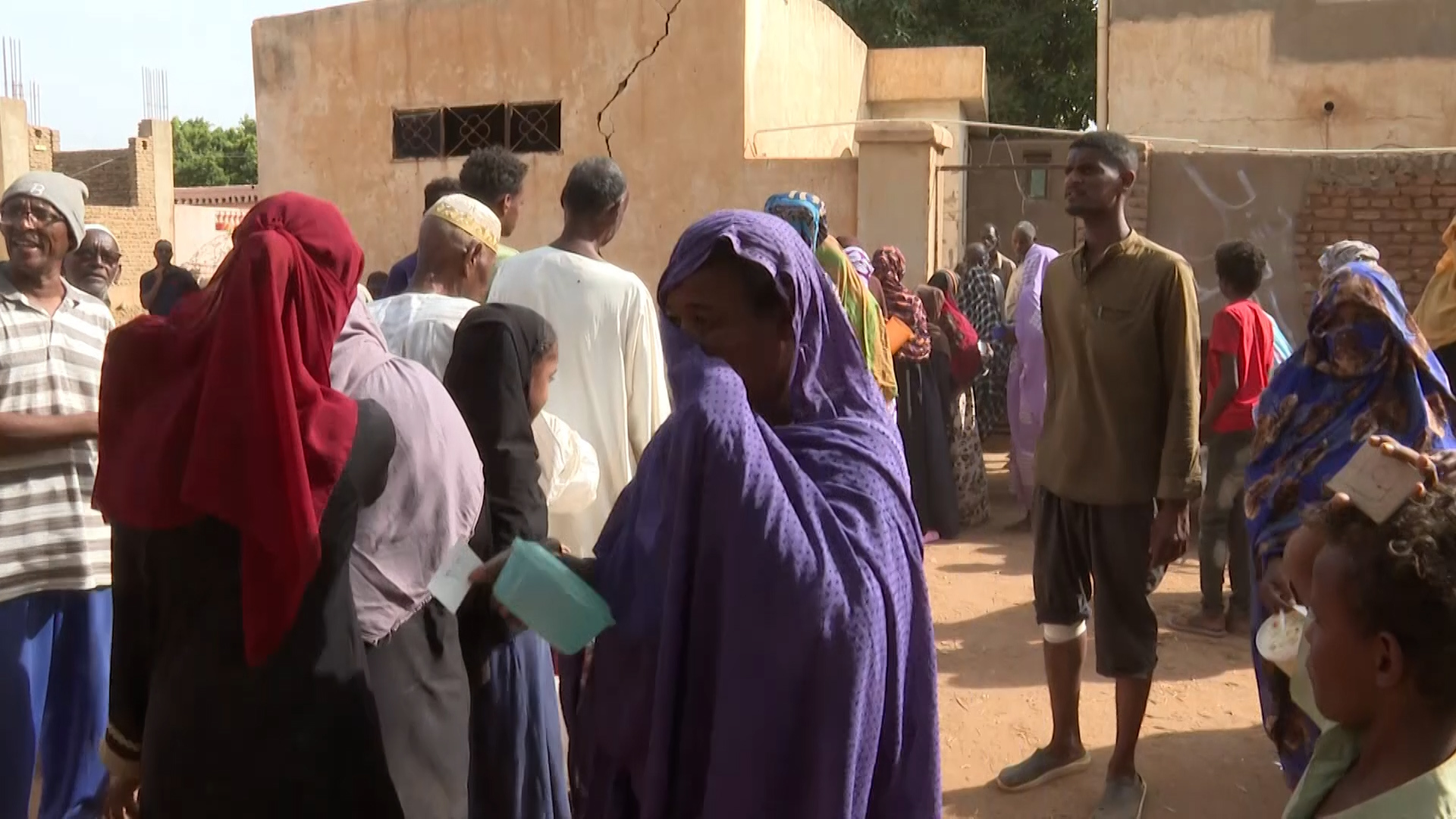play videoplay video
Video duration 03 minutes 08 seconds 03:08
United Nations Humanitarian Aid Coordinator, Martin Griffiths, warned the UN Security Council that approximately 5 million people may suffer from “catastrophic hunger” in some areas of Sudan in the coming months.
Yesterday, Friday, the United Nations called for “unrestricted access” for humanitarian workers in Sudan, which is threatened by famine, nearly a year after the war between the army and the Rapid Support Forces.
United Nations agencies measure cases of food insecurity in the world on a scale that includes 5 stages, the maximum of which is famine.
The food emergency on this scale ranks fourth, meaning it is only one stage below the extreme situation.
According to the latest UN classification of the food security situation in Sudan, the number of people suffering from a food emergency (stage four) in this country is estimated at about 4.9 million people, more than 300,000 of whom live in Central Darfur and more than 400,000 others in West Darfur.
So far, no one in Sudan has been classified in the fifth stage, i.e. “famine.”
But Griffiths warned in his note to the Security Council that "people classified in the fourth stage in West Darfur and Central Darfur will likely move to the fifth stage."
Griffiths said in his memo that the acute levels of hunger are caused by the severe impact of the conflict on agricultural production, damage to key infrastructure and livelihoods, disruption of trade flows, sharp increases in prices, obstacles to humanitarian access and large-scale displacement.
“Without urgent humanitarian aid and access to basic goods, about 5 million people may slide into a catastrophic state of food insecurity in some areas of the country in the coming months,” the UN official wrote.
He pointed out that some people in West and Central Darfur may be besieged by famine conditions as the security situation deteriorates and the dry season begins.
Griffiths added that the arrival of cross-border aid from Chad to Darfur is a "vital lifeline."
Griffiths expected that about 730,000 children across Sudan would fall victim to severe acute malnutrition, including more than 240,000 children in Darfur.
Urgent action
The UN official called for "urgent measures" to be taken to prevent this disaster from "taking root," calling in particular for improving humanitarian access, providing more funds, and achieving a ceasefire.
Yesterday, Friday, the United Nations called for “unrestricted access” for humanitarian workers in Sudan.
"To reach those in need, humanitarian organizations need safe, rapid, continuous and unrestricted access, especially across front lines," said spokesman for the UN Secretary-General Stephane Dujarric.
He stressed that "massive mobilization of resources by the international community is also necessary," noting that the United Nations humanitarian aid program for Sudan with $2.7 billion in 2024 was only funded by less than 5%.
Jill Lawler from the United Nations Children's Fund (UNICEF), who recently visited Khartoum, explained that there is a sufficient stock of humanitarian aid in Port Sudan, but delivering it to the population poses a problem.
Recently, the Director of the United Nations World Food Program, Cindy McCain, stressed that “the Darfur region witnessed the largest hunger crisis in the world 20 years ago, and the world united its efforts to respond to it, but the Sudanese today are forgotten.”
The war broke out in Sudan on April 15, 2023, between the army led by Abdel Fattah al-Burhan and the Rapid Support Forces led by Muhammad Hamdan Dagalo, known as (Hemedti), and resulted in thousands of deaths and the displacement of millions of others.
The United Nations says that about 25 million people, or half of Sudan's population, need aid, and that about 8 million people have fled their homes.
Under a Security Council resolution in 2018, the UN Secretary-General must report to the 15-member council if there is “a risk of famine as a result of conflict and widespread food insecurity in armed conflict.”
Griffiths said that since the start of the war in Sudan, more than 1,000 incidents related to the arrival of aid have been observed, "which have negatively affected humanitarian aid operations."
He added that 71% of them were caused by conflict or deliberate violence against humanitarian aid assets or relief workers.
Source: Al Jazeera + agencies

